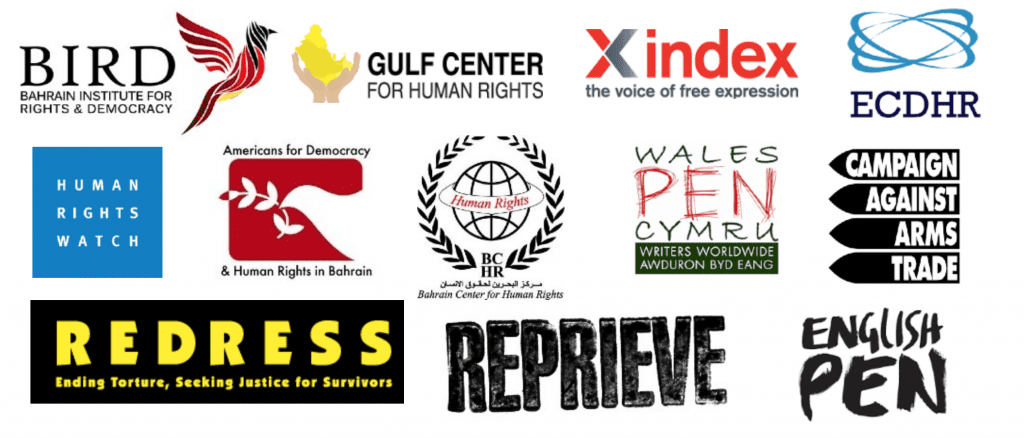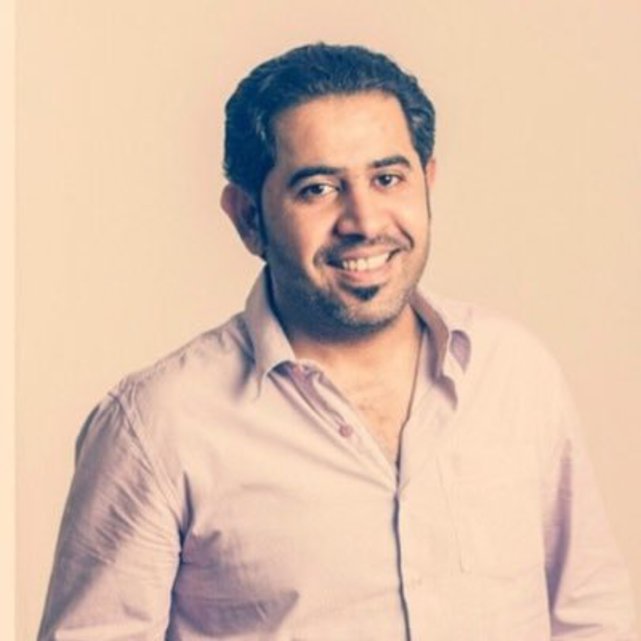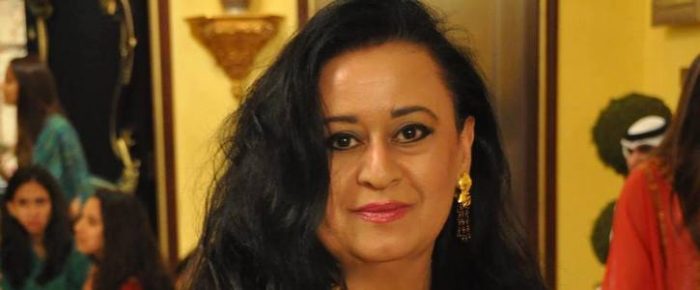4 Dec 2016 | Bahrain, Bahrain Statements, Campaigns, Campaigns -- Featured, Middle East and North Africa, Statements
[vc_row][vc_column][vc_column_text]
Theresa May
Prime Minister
10 Downing Street
London
SW1A 2AA
Cc: Boris Johnson
Secretary of State for Foreign and Commonwealth Affairs
King Charles Street
London
SW1A 2AH
December 4, 2016
Dear Prime Minister,
The undersigned organisations are writing to you in advance of your trip to Bahrain on 6 December to express our concerns over the deteriorating human rights situation in the country and the UK government’s abject failure to exert any positive influence in this regard.
After your meeting with King Hamad at 10 Downing Street on October 26, 2016, when he invited you to be the “guest of honour” at the Gulf Cooperation Council Leaders’ Summit, your office issued a statement referring to “the progress that had been achieved through the King’s ongoing domestic reform programme.”
Unfortunately, there is no evidence to support any claims of progress where human rights are concerned. In fact there has been a marked deterioration in the human rights situation in Bahrain since June 2016, when the authorities dissolved the main political opposition group, al-Wifaq, jailed the country’s leading human rights activist, Nabeel Rajab, and harassed and prosecuted Shia clerics who peacefully protested the arbitrary revocation of the citizenship of al-Wifaq’s spiritual leader, Sheikh Isa Qasim.
In November, authorities charged Ebrahim Sharif, a prominent political activist, with “inciting hatred of the political system” after he criticised Bahrain’s government and a state visit to Bahrain by Britain’s Prince Charles, which was undertaken at the request of the British government. Although authorities have reportedly dropped these charges against Sharif, Nabeel Rajab remains detained on spurious charges and the government has denied his requests to be freed on bail while judicial proceedings continue. He faces charges that on the face of it solely relate to his peaceful criticism of Bahraini government policies, including Bahrain’s participation in the Saudi-led coalition’s airstrikes in Yemen and alleged torture of prisoners in the country’s largest prison. It is extremely disappointing that the UK has not called for Nabeel Rajab’s release, or indeed the release of any dissidents who are in jail solely for expressing their rights to free expression and assembly.
In response to a Freedom of Information request submitted by the Bahrain Institute for Rights and Democracy in April 2015, the UK Foreign and Commonwealth Office stated that the UK has provided the Bahraini authorities with a package of technical assistance, funding, and training, “focused on strengthening the oversight mechanisms responsible for investigating allegations of torture and mistreatment and supporting the reform of detention procedures in Bahrain.” However, as a November 2016 report by Amnesty International and a 2015 report by Human Rights Watch made clear, authorities have made little progress in holding officials accountable for the mistreatment and torture of detainees.
According to Amnesty International, “the UK government’s portrayal of the Ombudsman and the Special Investigations Unit as model institutions is utterly disingenuous”. We also have concerns that Bahrain may soon break a five-year de facto moratorium on the death penalty. Mohammed Ramadan and Husain Ali Moosa are both facing the death penalty despite the fact that their convictions hinge almost entirely on confessions that they retracted and which they claim were extracted after torture. In the case of Mohammed Ramadan, an investigation by Reprieve and the Bahrain Institute for Rights and Democracy demonstrated that the Ombudsman sent misinformation to the FCO, claiming not to have received torture complaints, a false claim that FCO Minister Tobias Ellwood then repeated in response to a written question from Tom Brake MP.
Your status as the guest of honour at this summit is a clear reflection of the close alliance that the UK government now enjoys with the government of Bahrain and the other Gulf Cooperation Council states.
The Bahraini authorities’ orchestrated attack on the rights to free expression, assembly and association, has seriously undermined the prospects of a political solution to Bahrain’s domestic unrest. If your government is serious about its commitment to encouraging reform and dialogue, you should use this influence to press the government of Bahrain to put an immediate stop to this repression. We urge you in particular, as part of this trip, to urge your Bahraini hosts to release Nabeel Rajab and other the political detainees without whom no process of dialogue will be possible.
Yours,
Americans for Democracy & Human Rights in Bahrain
Bahrain Center for Human Rights
Bahrain Institute for Rights and Democracy
Campaign Against Arms Trade
English Pen
European Centre For Democracy and Human Rights
Gulf Centre for Human Rights
Human Rights Watch
Index on Censorship
Redress
Reprieve
Wales Pen Cymru
[/vc_column_text][/vc_column][/vc_row][vc_row][vc_column][vc_basic_grid post_type=”post” max_items=”4″ element_width=”6″ grid_id=”vc_gid:1481021954644-66a7548e-2d8b-9″ taxonomies=”716″][/vc_column][/vc_row]
30 Nov 2016 | Index in the Press
A Bahraini criminal court has sentenced a sports journalist to three months in prison for a tweet that allegedly defamed the Sunni sect of Islam. Read the full article
28 Nov 2016 | Bahrain, Bahrain Letters, Campaigns, Campaigns -- Featured

On 29 November Faisal Hayyat was sentenced to 3 months in prison
To: Sheikh Hamad bin Isa Al Khalifa
King of Bahrain
CC :
Hon. Zeid Ra’ad Zeid al-Hussein
High Commissioner for Human Rights
Mr. John F. Kerry
United States Secretary of State
Frederica Mogherini
High Representative of the European Union for Foreign Affairs and Security Policy
The Right Honorable Boris Johnson
Foreign & Commonwealth Office
King Hamad,
We, the undersigned, express our deep concern with the Government of Bahrain’s campaign targeting journalists and activists exercising their right to free expression. On 9 October 2016, the Public Prosecution charged Faisal Hayyat, a sports journalist and social media activist, with insulting a sect and a religious figure. The government’s repeated harassment of Faisal and other online activists demonstrate the ongoing criminalization of free expression in Bahrain.
Faisal Hayyat is a renowned journalist and has appeared on various sports channels and has written for local Bahraini newspapers, Alalam, Albilad, and Akhbar Al Khaleej. He directs and presents short video programs online that provide critical perspectives on local politics.
Bahraini officials previously arrested Faisal in April 2011 for his involvement in the 2011 pro-democracy protests. The Bahraini security forces detained him for 84 days. During his detainment, authorities subjected Faisal to physical and psychological torture, including sexual harassment and degrading treatment. He has been vocal about this and recently published a letter on social media to the Bahraini Minister of Interior detailing the torture to which the government had subjected him. Government authorities never provided compensation for the abuse and never held any officials accountable. In the letter Faisal mentions, “I write this and I know it may cost me my freedom.”
On 7 October, Faisal published tweets commenting on events from early Islamic history. Two days later, Faisal was arrested and charged with “insulting a sect.” The government is therefore treating Faisal Hayyat’s opinion on events of Islamic history as a criminal liability. The government’s decision to prosecute him infringes both his freedom of expression and religion.
The undersigned NGOs believe Faisal has been targeted as part of a silencing campaign against critical voices of the government. Recently, the Bahraini government has brought further criminal charges against human rights defender Nabeel Rajab for an open letter published in the New York Times, and against political opposition leader Ebrahim Sharif for an interview he gave with the Associated Press. Furthermore, the opposition politician Fedhel Abbas received three years in prison for tweets criticizing the war in Yemen.
We, therefore, call on the authorities to respect Article 19 of the International Covenant on Civil and Political Rights (ICCPR), which mandates that “Everyone shall have the right to freedom of expression.” The Bahraini government must also respect Article 19 of the Universal Declaration of Human Rights (UDHR), which mandates that “Everyone has the right to freedom of opinion and expression; this right includes freedom to hold opinions without interference and to seek, receive and impart information and ideas through any media and regardless of frontier.”
As organisations concerned with the right to freedom of expression, we call on the Government of Bahrain to:
■ Immediately and unconditionally release Faisal Hayyat, Nabeel Rajab, and all internet users arrested and imprisoned for merely exercising their right to freedom of expression; and
■ Abide by international human rights standards, including the ICCPR and UDHR, by upholding the right to freedom of expression without any restrictions.
Signed,
Americans for Democracy and Human Rights in Bahrain
Adil Soz – International Foundation for Protection of Freedom of Speech
Afghanistan Journalists Center
Africa Freedom of Information Centre
Albanian Media Institute
ARTICLE 19
Bahrain Center for Human Rights
Bytes for All
Cambodian Center for Human Rights
Canadian Journalists for Free Expression
Center for Independent Journalism – Romania
Centre for Independent Journalism – Malaysia
Freedom Forum
Freedom House
Free Media Movement
Gulf Centre for Human Rights
Human Rights Network for Journalists – Uganda
Hungarian Civil Liberties Union
Independent Journalism Center – Moldova
Index on Censorship
Institute for Reporters’ Freedom and Safety
Institute for the Studies on Free Flow of Information
International Federation of Journalists
International Press Centre
International Press Institute
Maharat Foundation
MARCH
Media, Entertainment and Arts Alliance
Media Institute of Southern Africa
Palestinian Center for Development and Media Freedoms – MADA
PEN American Center
PEN International
Reporters Without Borders
Social Media Exchange – SMEX
South East European Network for Professionalization of Media
Vigilance pour la Démocratie et l’État Civique
World Association of Community Radio Broadcasters – AMARC
World Association of Newspapers and News Publishers
Bahrain Institute for Rights and Democracy (BIRD)
Bahrain Press Association (BPA)
Burundi Child Rights Coalition
English PEN
European – Bahraini Organisation for Human Rights (EBOHR)
European Center for Democracy and Human Rights (ECDHR)
International Federation for Human Rights (FIDH)
Project on Middle East Democracy (POMED)
Salam for Democracy and Human Rights
Union de Jeunes pour la Paix et le Developpement
16 Nov 2016 | Bahrain, Bahrain Statements, Campaigns, Campaigns -- Featured, Middle East and North Africa, Statements

Women’s rights defender, writer and blogger Ghada Jamsheer remains in jail in Bahrain serving a combined ten-month sentence for exercising her right to free expression on Twitter. On 7 November 2016, Jamsheer appeared before Judge Mohamed Al-Khalifa of the High Criminal Court of Appeal to request that she be freed to serve out the remainder of her sentences outside of jail due to health concerns, however, the judge has not yet informed her of his decision.
The undersigned more than 20 rights groups from around the world call for the sentence to be overturned, as it violates her right to free expression, and for Jamsheer to be freed immediately so she can receive proper treatment for her debilitating rheumatoid arthritis.
Jamsheer, President of the Women’s Petition Committee (WPC), is being held in connection with multiple sentences imposed relating to her tweets exposing corruption within the management of King Hamad Hospital, which is run by members of the ruling family.
Jamsheer was detained on 15 August 2016 upon arrival from London where she was receiving medical treatment for her arthritis. She reports that she needs medication to ease the pain but fears that she will risk her health if she takes the medication in jail because it compromises her immunity. Jamsheer showed the Judge her medical reports, which have been translated into Arabic.
Following the hearing on 7 November, she was returned to Isa Town women’s prison, where conditions are cold and unsanitary. She was told she would receive a decision within a week. The hearing was well-attended by lawyers and other observers, including a representative of the United States Embassy.
On 22 June 2016, Jamsheer was sentenced on appeal to prison by the Second High Criminal Court for four cases of defamation related to her tweets. She was originally misinformed that she was facing one year, but was told after her arrest in August that she is serving a ten-month term. She has now spent three months in prison this year, in addition to three months served when she was first arrested under the same charges on 15 September 2014.
Jamsheer has 12 charges against her related to this case. She was fined 10,000 dinars (approx. USD$26,500) for defamation of the management of the hospital. In addition, she was also sentenced to one year in prison (suspended) on trumped up charges of allegedly “assaulting a police officer” while in custody.
Jamsheer was featured in the #SheDefends campaign on 28 October, organised by the Women Human Rights Defenders Middle East and North Africa Coalition.
Over 250 people have called for her freedom by signing a petition in support of Jamsheer and women human rights defenders in Bahrain. Supporters are still signing the petition athttps://action.manifesta.net/petitions/ask-the-king-of-bahrain-to-stop-persecuting-women-human-rights-defenders
We, the undersigned organisations, call on the government of Bahrain to:
- Immediately and unconditionally free Ghada Jamsheer;
- Overturn the sentence against Ghada Jamsheer, which violates her right to free expression;
- Immediately and unconditionally free all detained human rights defenders in Bahrain;
- At the very minimum, ensure all prisoners, including Ghada Jamsheer and other human rights defenders, have access to proper medical treatment and ensure conditions in prison necessary to maintain health; and
- End all forms of reprisals against human rights defenders and other activists, including travel bans, in violation of their rights to freedom of assembly and freedom of expression.
Signed:
Americans for Democracy and Human Rights in Bahrain
Arabic Network for Human Rights Information
Article 19
Association for Women’s Rights in Development
Bahrain Institute for Rights and Democracy
Bahrain Center for Human Rights
Bahraini Organisation for Human Rights
Civicus
Front Line Defenders
Gulf Centre for Human Rights
FIDH, within the framework of the Observatory for the Protection of Human Rights Defenders
Brian Dooley, Human Rights First
Index on Censorship
International Service for Human Rights
Lawyer’s Rights Watch Canada
Nazra for Feminist Studies
No Peace Without Justice
Reporters Without Borders
Urgent Action Fund for Women’s Human Rights
Women Human Rights Defenders International Coalition
Women Human Rights Defenders Coalition in the Middle East and North AfricaCoalition
World Organisation Against Torture, within the framework of the Observatory for the Protection of Human Rights Defenders



